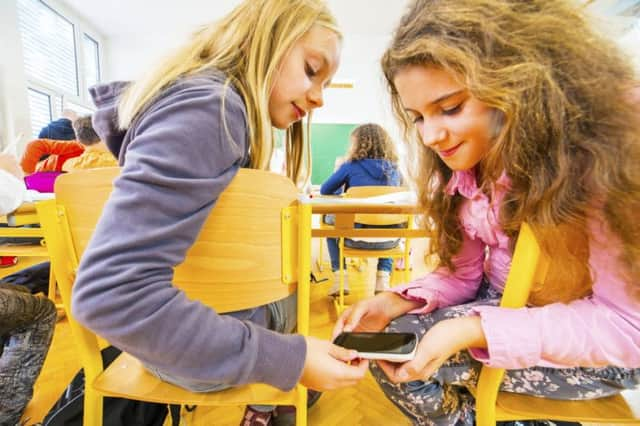Education key to using social media


Generation Z socialise via websites including Facebook, Twitter, YouTube, Instagram and Snapchat more frequently than they do in person or by phone. This is the generation which does not remember life before iPads and instant communication. Apps on mobile phones mean they are never far away from their next status update. Is this an evil to be eliminated by schools or can it be harnessed as a force for good?
Recent tragic incidents of teenage suicide following cyberbullying on social networking sites naturally give rise to serious concern. Bullying on social media does not start or stop at the school gates, giving victims little respite. Passwords and privacy settings mean parents and teachers may have no idea what is going on until significant damage has been done.
Advertisement
Hide AdAdvertisement
Hide AdSchools, whether local authority or independent, have an obligation to safeguard children and protect their welfare. They must therefore have very clear, and clearly communicated, policies (whether in acceptable use and/or anti-bullying policies) on required standards of online behaviour both during the school day and outside of school hours. The policies must make clear the potential sanctions if there is found to be inappropriate use, and the terms of the policies must be applied and enforced consistently. Parents or pupils with concerns about online messages or postings should be advised to report their concerns to a named member of staff and to the website in question, and pupils should be discouraged from sharing passwords to minimise the risk of unauthorised access and impersonation.
As employers, schools also have obligations towards their staff. A recent survey by the National Association of Schoolmasters Union of Women Teachers revealed that 21 per cent of teachers have been subject to online abuse by pupils and/or parents, including on sites such as RateMyTeachers.com. Employers are obliged to take reasonable steps to protect their staff from such harassment.
Schools which do not take appropriate steps or precautions, or fail to address problems as they arise, risk claims that they have breached their duty of care to staff or pupils, or breached their obligations to protect staff and pupils from discrimination and harassment.
The need to caution against inappropriate social networking does not apply only to pupils. The stakes for teachers are high, given their positions of responsibility and close contact with children. Employment tribunals have found that it can be fair to dismiss employees whose online postings bring their employer into disrepute. The cost of improper use by teaching staff could extend beyond disciplinary action to criminal proceedings and/or action by the GTC.
Again, schools should issue a policy spelling out the standards of online conduct expected from employees and the consequences of failing to comply. Such policies should be reinforced by training, and should address the question of personal social network profiles. Teachers should be advised to have their privacy settings at the highest level and, even then, to think carefully before they post. They should never be online “friends” with pupils and should have nothing on their profile which associates them with their school. Reputational damage for individual teachers and schools is a key issue. The risk of an inappropriate post being circulated widely is high.
Policies should emphasise to staff and pupils that they cannot hide behind anonymity or pseudonyms and that ill-judged postings can never be truly deleted.
Many schools will have their own social media profiles. Access to these accounts should be restricted, with clear rules as to how profiles are to be used, including a prohibition on the expression of personal views. The many benefits to social media usage must not be forgotten, however. A shining example is Martha Payne’s NeverSeconds blog on school dinners which has helped her raise over £140,000 for Mary’s Meals. Twitter and Facebook are often used by schools to share information, set homework and keep parents up-to-date on news and events which can assist busy working parents to maintain an involvement in school life. The internet makes the world a much smaller and more accessible place and social media can be used by pupils to communicate instantly with their counterparts across the globe.
Some would argue for a total ban on social media use in schools and to discourage it outside school but this would be to ignore the reality of personal and professional communication in the 21st century. Young people are going to interact through social networks and so need to be taught how to do so safely and responsibly. • Frances Ross is a partner at Simpson & Marwick www.simpmar.com
SEE ALSO